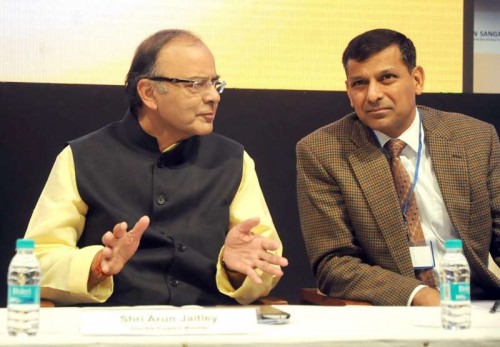
Asserting that India’s economic growth will be significantly better next year, Finance Minister Arun Jaitley said the real economic growth potential of the country was over 9 percent.
“We have a roadmap to bring down fiscal deficit below three percent in a few years. Elimination of subsidies in India is not desirable. We need to rationalise the subsidies,” he said on the sidelines of the World Economic Forum at Davos.
He also said the government has a mandate to act fast and it is moving rapidly on reforms.
Jaitley admitted that managing inflation in the country became easier following the lowering of crude oil prices.
“We have maintained inflation at an acceptable level. Declining oil prices also help bring down inflation. Declining oil prices help in cutting down subsidies and current account deficit,” he added.
The minister hoped that the Goods and Services Tax (GST) Bill will be passed in the next Parliament session. “The government will call a Joint Session of Parliament if the Insurance Bill is not approved or gets delayed beyond six months,” he added.
He also said that the government is planning to reform kerosene subsidy as part of its moves to control expenditure.
Jaitley said that after partial reforms in petrol, diesel and cooking gas subsidy, the government intends to go ahead and stem misuse of subsidised kerosene.
“We plan to go ahead with the kerosene (subsidy) reform. The subsidies will not be rolled back, they will only be rationalised so that the intended masses will benefit out of it,” he added.
“We have a target to bring down the capital expenditure to 4.1 percent (of the gross domestic product) and below three percent in subsequent years.”
The finance minister said diesel prices were now market-linked and 150 million families across India will now get direct cooking gas subsidy benefit in their accounts.
“Our next step in cooking gas subsidy reform is to carve out the intended beneficiaries, so that they can receive direct benefit of subsidies,” Jaitley said.
According to the finance minister, there was a need to rationalise subsidies as the government cannot perpetually borrow to fund its schemes.
The finance minister said this perpetual borrowing will burden the future generations, who will then have to pay back the debt incurred to fund subsidy schemes